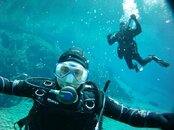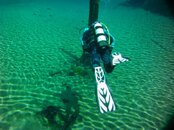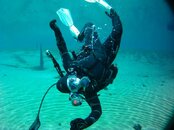For those wondering about the reason people would dive in Clear Lake, let me explain a bit about this lake. This post has nothing to do with the this fatality, but is written to show why people like diving here. I have not been in Clear Lake since the 1980s, but treasure the memories of diving there. The head of the lake, which is actually the headwaters of the McKenzie River, is spring-fed. As such, it is very cold year-round, and very clear. It is as close to the clarity of the tropics as we can get in Oregon. Diving in Clear Lake is like floating in air. It is completely different from our "normal" saltwater or freshwater diving in rivers. Visibility seems unlimited. It is easy to get a ways away from your buddy here, as we can see each other 50 feet away. Buoyancy control is very important, as the bottom is a very soft silt that can boil up into the water if we get close to the bottom. Here are some images I have taken, and below there are a few more, in Clear Lake.
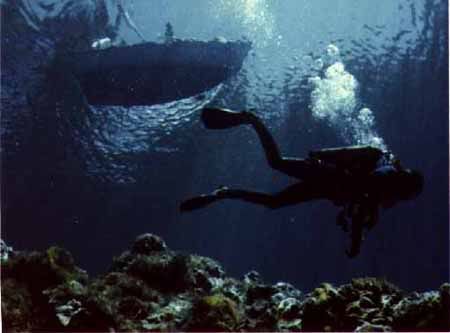
Looking up, the rowboat seems to hover over the diver.
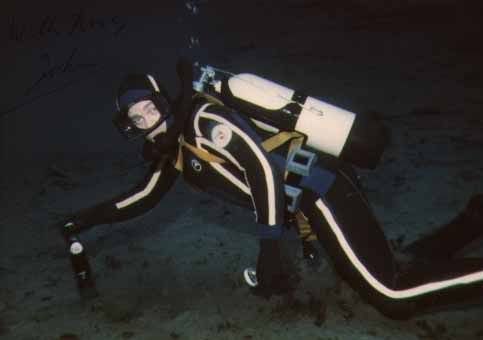
In the 1970s, I dove a pull-ove wetsuit, and a double hose regulator.
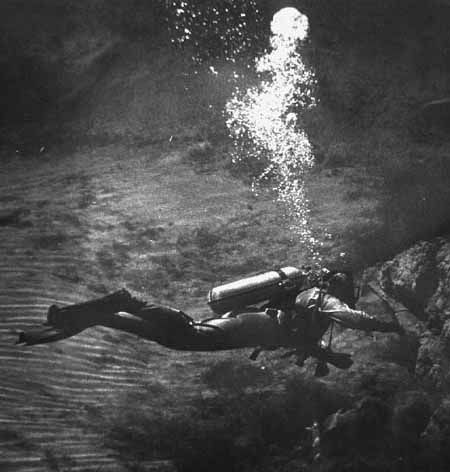
I experimented with an Aquala Dry Suit in Clear Lake in the later 1970s.
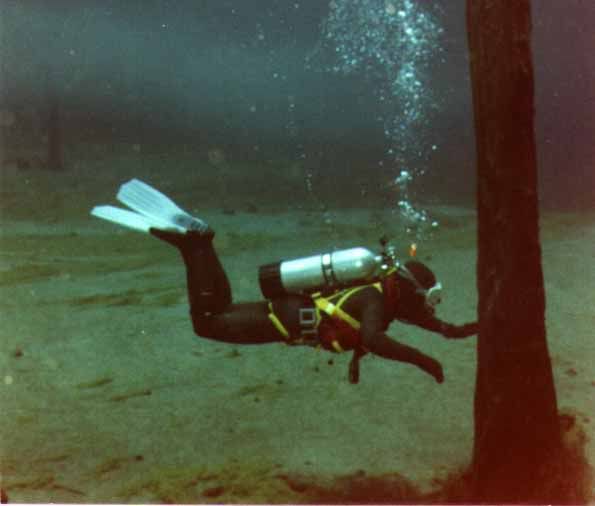
There is a petrified forest in Clear Lake, which is very, very old, apparently over 1000 years old. To see that these trees are much the same as when the lake was formed by volcanic action as the Cascade Mountains explains the wonder divers feel diving Clear Lake in the Oregon Cascades.
When we dived, it was before the
altitude dive tables had been published. So we dove capillary gauges for our depth readings, feeling that these better compensated for the pressure changes at altitude than more expensive oil-filled gauges which are calibrated for salt water and sea level. This is because the capillary gauge is directly affected by the air pressure, and also the air column shortens when the air cools. For those who don't know, a capillary gauge is simply a tube that allows water in, and gives a calibrated depth reading. If half the tube is filled, you are at 33 feet (34 in fresh water); at 66 feet (68 in fresh water) the tube is about 1/3 filled with air, and you can see the water coming into the tube by a yellow backing under the tube.
I see where this is
advertised as a beginner/intermediate diving experience. But be aware that it is relatively easy to get deep in Clear Lake, and that as the divers go downstream (there is about a half-knot current in the narrows area), the lake deepens and the visibility gets worse. Also, and this may be a factor in this accident, the weather is a factor in any dive here unless it is summer and warm. Right now there is snow in the Cascades, so this could complicate things and chill people even before getting into the water.




